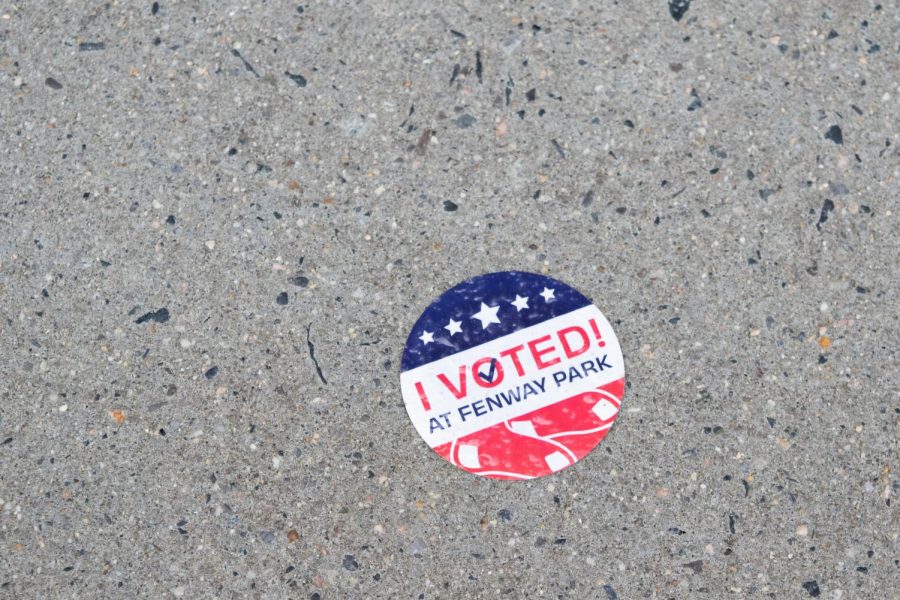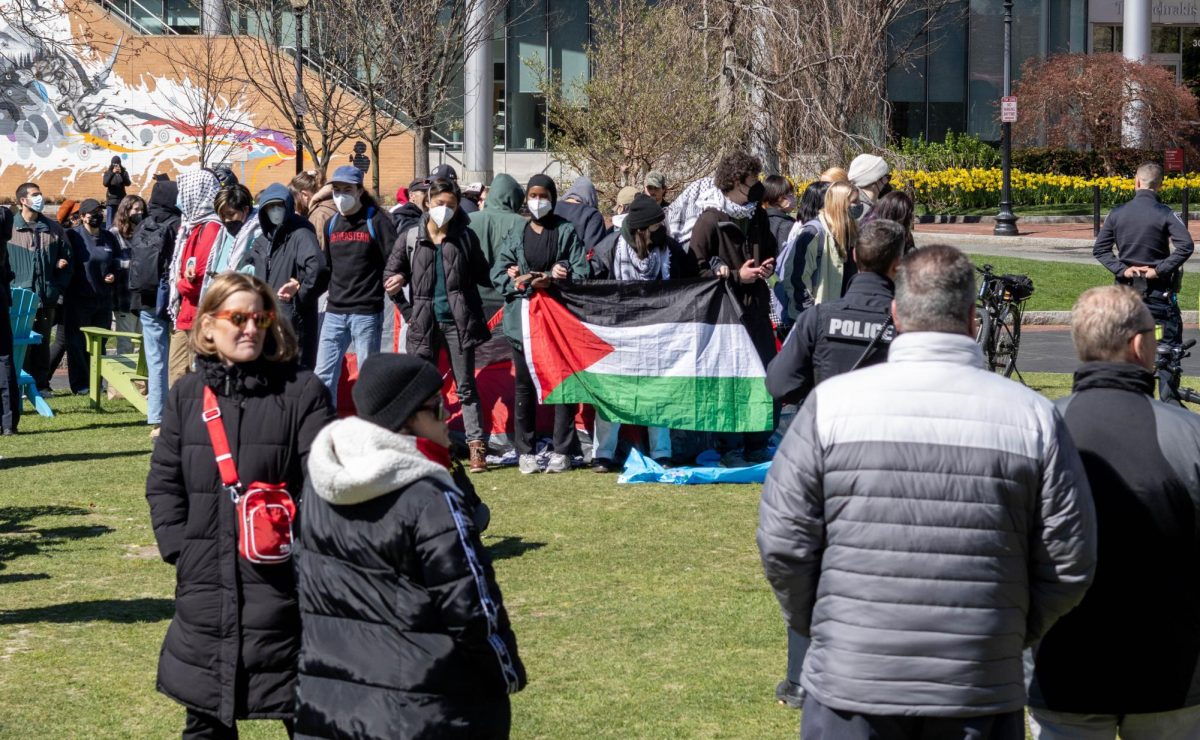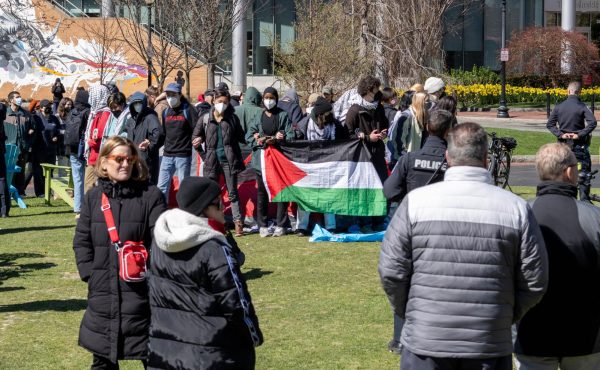Boston gears up for historic mayoral primaries
September’s preliminary election will narrow the field down to two candidates who will face off in the Nov. 2 general election.
September 1, 2021
Boston is set to make history Sept. 14 as local voters head to the polls for the first preliminary mayoral election, where all major candidates are people of color, four of whom are women.
September’s preliminary election will narrow the field down to two candidates who will face off in the Nov. 2 general election. The election is the first without an incumbent since former mayor Marty Walsh was elected in 2013, after Boston’s longest-reigning mayor Thomas Menino retired from the post.
The open race made for a crowded field, with one state representative (Jon Santiago), four city councilors (Andrea Campbell, Annissa Essaibi-George, Kim Janey and Michelle Wu) and one former Walsh cabinet member (John Barros) all jumping in earlier this year. Since then, only one candidate, Jon Santiago, dropped out, saying in a statement that he looked forward “to supporting the first elected woman of color to lead Boston.”
With the preliminary right around the corner, here’s what to know about the candidates and the election.
Who are the candidates?
Michelle Wu
Michelle Wu is an at-large city councilor living in Roslindale. The 36-year-old first-generation Taiwanese-American is a mother of two who formerly worked in the Menino administration and on Senator Elizabeth Warren’s campaign. A Harvard graduate, Wu became the first woman of color to become City Council President and was elected to the position unanimously. Wu gained significant publicity in 2019 when she began advocating to do away with fares for MBTA bus and subway riders.
Learn more about Michelle Wu’s campaign for mayor here.
Here is who has endorsed Wu.
Kim Janey
Kim Janey was elected city council president in 2020 after representing Boston’s 7th District since 2018. When Walsh stepped down, Janey became acting mayor, making her the first Black person and the first woman to hold the position. The 56-year-old fourth-generation Roxbury resident attended Boston Public Schools during the city’s busing era. Janey previously worked as an organizer, including with Massachusetts Advocates for Children, before winning her council seat in 2017.
Learn more about Kim Janey’s campaign for mayor here.
Here is who has endorsed Janey.
Annissa Essaibi-George
Annissa Essaibi-George is an at-large city councilor and small business owner from Dorchester. A former Boston Public Schools teacher and mother of four, Essaibi-George was first elected to the council in 2015 and currently serves as the chair of the education committee. Known as the more moderate candidate in the race, the 47 year old was endorsed by former police commissioner William Gross and is considered the pro-police candidate. Essabi-George’s father is from Tunisia, and her mother is Polish-American. She identifies as Arab-American.
“Annissa’s path to victory is through Boston’s neighborhoods. She’s going to continue to be accessible and present to all residents, just as she has as a city councilor at-large,” Essaibi-George’s campaign manager Cam Charbonnier said in an email to the News.
Learn more about Annissa Essaibi-George’s campaign for mayor here.
Here is who has endorsed Essaibi-George.
Andrea Campbell
Andrea Campbell is a city councilor representing Boston’s 4th District. Campbell, who currently resides in Mattapan, grew up in Boston and was first elected to the council in 2015. The 39-year-old mother of two became the first Black woman to serve as council president in 2018. Campbell attended Boston Public Schools and graduated from Princeton and the University of California, Los Angeles Law School before working for former Massachusetts Governor Deval Patrick’s administration. Campbell’s twin brother, Andre, died at 29 years old while awaiting trial in prison. The way her brother’s path diverged from her own is something Campbell cites as a motivator for her work in the city’s government.
Learn more about Andrea Campbell’s campaign for mayor here.
Here is who has endorsed Campbell.
John Barros
John Barros served as chief of economic development in the Walsh administration, and stepped down earlier this year to launch his campaign. Barros is Cape Verdean-American and has been a lifelong resident of Roxbury and Dorchester. The 47-year-old father of four began his work as an organizer when he was just 14, eventually becoming executive director of the Dudley Street Neighborhood Initiative and a member of the Boston School Committee. After losing Boston’s preliminary mayoral election in 2013, Barros joined Walsh’s administration where he served until this year.
Learn more about John Barros’ campaign for mayor here.
Here is who has endorsed Barros.
Where do the candidates stand?
In a June poll from Suffolk University, Wu and Janey were in the lead with 23% and 22% of voters’ support respectively. Essaibi-George followed with 14%, and Campbell came in at 11%. Barros was the only candidate not within striking distance, with just two%. However, at the time of the poll 22% of voters remained undecided.
Polling from Emerson College published Aug. 26 shows Wu pulling ahead, with 24%, followed by Essaibi-George with 18% and Janey with 16%. Barros remained behind the rest of the field, still with 2%. 25% of eligible voters in the city were still undecided.
Where does coronavirus fit into the race?
As the Delta variant sweeps across the country, coronavirus is again a topic of rising concern in Boston, just as candidates prepare for the final stretch of the race up to the preliminary election.
Among the issues at hand are vaccine requirements and vaccine passports in the city. When asked initially about vaccine requirements, Janey’s response referenced birthism and alluded to “freedom papers,” used during slave eras, evoking outcry from fellow candidates, most notably from Campbell.
“When we are combating a deadly virus and vaccine hesitancy, this kind of rhetoric is dangerous. Showing proof of vaccination is not slavery or birtherism. We are too close to give ground to COVID. Science is science. It’s pretty simple — vax up and mask up,” Campbell wrote in a tweet.
Janey clarified her comments following Campbell’s response and later issued vaccine and testing requirements for city workers and a mask mandate for indoor spaces in the city. However, she reiterated that she would not implement any proof of vaccination requirements for other public spaces, saying that it would discriminate against Black and Latinx residents, populations with relatively low vaccination rates.
Campbell fired back in a press conference, as reported by Boston.com.
“No one has suggested that for Boston, and this wasn’t part of the policy implemented in New York City,” she said. Misinformation like this erodes trust in our public health system and will likely prevent people from getting vaccinated.”
Of the five major candidates, only Barros has come out in full support of a vaccine passport similar to the system recently created in New York City. Wu said the city should require proof of vaccination for high-risk areas, and Essaibi-George said she was open to the idea but not as a first step.
Recently, Janey was called out after she was photographed in a North End restaurant without a mask, the same day the mask mandate she instituted went into effect.
Where, when and who can vote?
Any Boston resident who registered to vote by Aug. 25 is eligible to vote in the September preliminary election. People can vote early beginning Sept. 4 up until Sept. 10 at one of several early voting locations throughout the city, including City Hall. People can also vote absentee if they are unable to vote in person, either by mailing in their ballot, by dropping it off at the designated drop box by 8 p.m. on the day of the election, or by dropping it off at an early voting site.


















